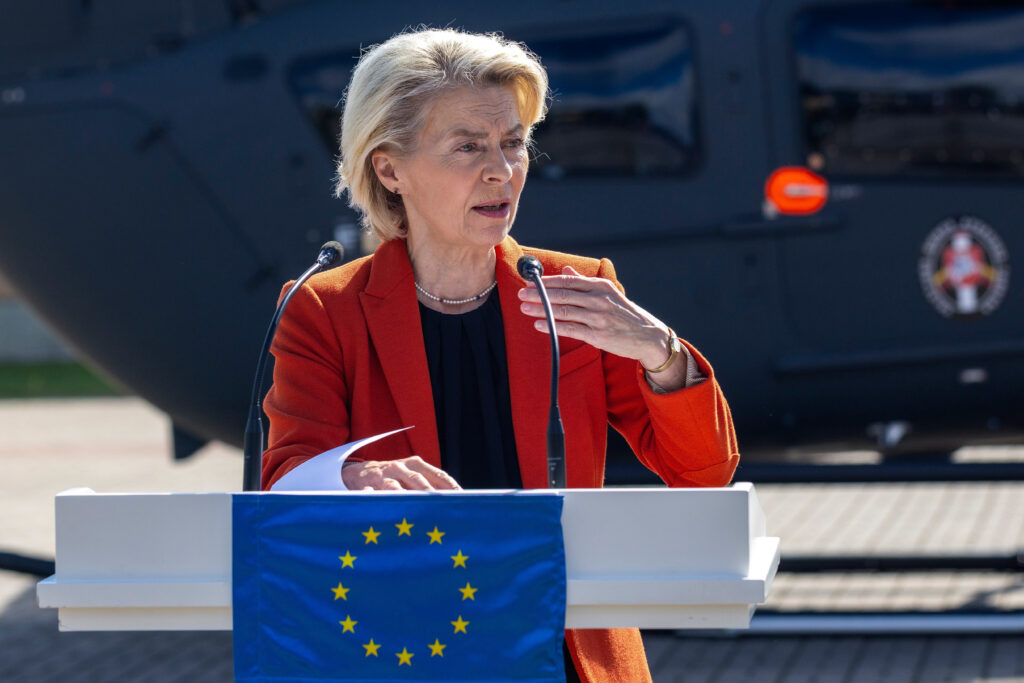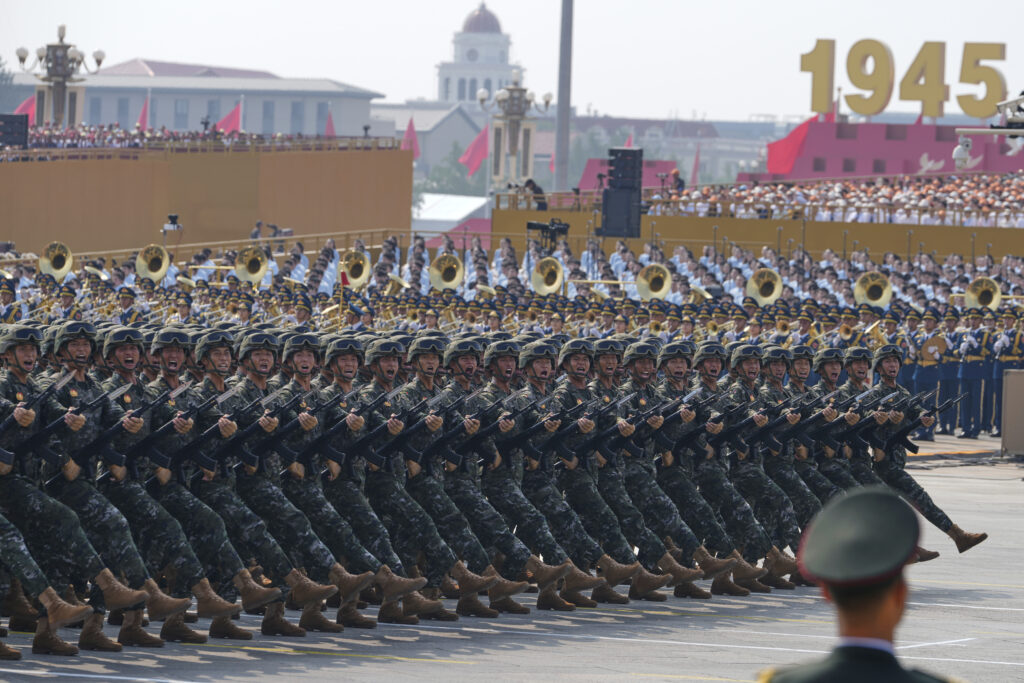From Flooding Peat Bogs to Drafting Women, Eastern Europe Braces for the Beast From the East
Fear of a Russian invasion spurs heightened defense spending and preparation.

President Ursula von der Leyen of the European Commission called President Vladimir Putin of Russia “a predator.” President Emmanuel Macron of France called him “an ogre at our gates.” Chancellor Friedrich Merz of Germany called him “perhaps the most serious war criminal of our time.”
In contrast, President Trump said he would “love” to have Mr. Putin fly to Miami next year for a meeting of the Group of 20 leaders at his Trump National Doral Miami. At the same time, news broke that the Trump administration plans to phase out funding — about $200 million — for the Baltic States Initiative, a defense training and equipment program for member nations of the North Atlantic Treaty.
This widening gulf in approaches to Russia reflect the urgency that “front line” European states feel about the Kremlin’s war on Ukraine. Moving beyond feelings, Poland scrambled its war jets yesterday after Russian drones entered Polish airspace for the third time in three weeks. Separately, a military plane carrying President Gitanas Nausėda of Lithuania last week delayed for two hours landing at its capital, Vilnius, because of reports of a Russian drone nearby.
Ms. von der Leyen made her “predator” comment at the start of a four-day reassurance trip to seven Eastern European neighbors of Russia. Toward the end, landing in Bulgaria was complicated when her plane suffered GPS jamming, a tactic frequently used by Russia against Western airplanes in the Baltic. Her pilot safely landed the plane using paper maps.

Increasingly, Eastern European nations are taking concrete steps to defend themselves against a possible invasion from Russia. Poland, Finland, and Estonia are taking steps to pump water back into peat bogs that were dried out long ago for farming. The goal is to create water barriers impassable for Russian tanks. Military planners say they were impressed by the Ukrainians who blew up a dam north of Kyiv in the first days of the 2022 invasion.
In only a slight exaggeration, Mr. Trump said last month that Russian forces would have reached Kyiv in “four hours” if their tanks had not got “stuck in the mud.” Depending on topography, it can take one year to block drainage channels and “rewater” a peat bog. Last March, the dangers of a water barrier were illustrated when four American GIs died after their M88 Hercules armored recovery vehicle sank in a swamp during a training exercise in Lithuania, near the Belarus border.
The North Atlantic Treaty Organization’s “bog belt” stretches from the Finnish Arctic down to Suwalki Gap, the strategically vulnerable Polish-Lithuanian border squeezed between Belarus and the Russian exclave of Kaliningrad. Since restoring bogs is not popular with farmers, defense ministries start by rewetting state-owned border land. In Finland, the prime mover behind the project is an MP in Finland’s governing party, Pauli Aalto-Setälä, a former tank officer.
In another measure of anxiety about Russia, support is growing around Eastern Europe for widened military conscription. Finland plans to increase the age limit for reservists to 65 years and to increase its military reserve by 125 000 soldiers by 2031. This would give Finland, a nation of only 5.6 million people, a wartime army of one million, the largest in the European Union.
Last week, the Latvian defense minister, Andris Spruds, announced a plan to start drafting women in 2028. This move would be part of the Baltic nation’s plan to double its military to 30,000 soldiers, by 2028. Denmark is to start drafting women next year. The days are long gone when Europe’s shriveled militaries war gamed a “blue” team against a “red” team. Today, the enemy is clear-cut.
“Russia is there as a long-term threat to the whole of the Alliance,” NATO’s chief, Mark Rutte, told reporters last week at Luxembourg. “It is crucial that our deterrence is such that they will never, ever try to attack one square kilometer of NATO territory.”
China’s military parade last week was impressive, European leaders say. Yet, they add, the immediate threat to Europe is Mr. Putin’s Russia. Moscow is “without a shadow of a doubt the main threat to Europe, and to NATO,” Sweden’s foreign minister, Pål Jonson, told Newsweek after the Beijing parade. “Russia is going to be the defining challenge for Europe for the long haul.”

More and more Eastern European nations say they are on track to meet the Trump administration’s goal of spending 5 percent of domestic output on defense. In some cases, Mr. Trump was pushing on an open door. Poland’s foreign minister, Radek Sikorski, likes to quote a Polish saying: “Every country has an army. Either your own — or a foreign one.”
In the neighboring Czech Republic, memories are still raw of Soviet tanks rolling through Prague in the summer of 1968. Last week, the Czech defense minister, Jana Černochová, announced a $1.6 billion deal to buy 44 Leopard 2A8 tanks, Germany’s most modern.
Reflecting today’s edgy, name-calling mood in Europe, the Czech foreign minister, Jan Lipavský, responded yesterday to Russia’s colossal weekend drone attack on Kyiv by posting on X: “Putin is a coward who attacks women and children.” Statistics show that Russia’s drone and missile attacks on Ukrainian cities have increased since the mid-August Trump-Putin summit in Alaska.
Kremlin officials have rebuffed the European leaders’ attacks on Russia’s president as “low grade insults.” Keeping tensions high, Mr. Putin said that any foreign troops stationed in Ukraine would be “legitimate” targets if there is no peace accord. Mr. Macron had said that 26 nations have agreed to send their air, land, or naval forces to enforce a demilitarized zone.
To stiffen European spines, the NATO secretary general, Mr. Rutte, said the alliance shouldn’t overestimate Russia’s power, as its economy “is not bigger than Texas.” He implored Thursday at Prague: “We have to stop making Putin powerful — he’s the governor of Texas, nothing more. Let’s not take him too seriously.”

